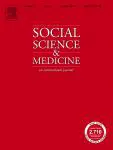| Titre : | Increasing drug users' adherence to HIV treatment: results of a peer-driven intervention feasibility study (2002) |
| Titre traduit : | (Accroître l'adhésion des usagers de drogues au traitement VIH : résultats d'une étude de faisabilité d'une intervention par les pairs) |
| Auteurs : | R. S. BROADHEAD ; D. D. HECKATHORN ; F. L. ALTICE ; Y. VAN HULST ; CARBONE M. ; G. H. FRIEDLAND ; P. G. O'CONNOR ; P. A. SELWYN |
| Type de document : | Article : Périodique |
| Dans : | Social Science and Medicine (Vol.55, n°2, 2002) |
| Article en page(s) : | 235-246 |
| Langues: | Anglais |
| Discipline : | MAL (Maladies infectieuses / Infectious diseases) |
| Mots-clés : |
Thésaurus mots-clés PRISE EN CHARGE ; TRAITEMENT ; USAGER ; VIH ; INFECTION ; PROGRAMME ; RETENTION ; PAIRThésaurus géographique ETATS-UNIS |
| Résumé : | Active drug users with HIV infection suffer from both low utilisation of, and adherence to, primary care. Combining drug treatment and primary care on-site reduces these problems significantly because it creates a social support structure; treatment program staffs can monitor patients' adherence and provide ongoing encouragement. But in the United States, only a very small minority of HIV+ drug users receive this demonstrably effective form of care. We report the results from a feasibility study of an alternative support structure, termed a "peer-driven intervention", that serves as a functional equivalent to drug treatment for increasing drug users' adherence to HIV therapeutics. The six-month study included 14 adult active drug users receiving medical care for HIV disease in New Haven, Connecticut. As a health advocate, each subject was assigned and asked to meet with another subject once a week at the project's storefront to provide peer support and counseling. As a peer, each subject was assigned and asked to meet with another health advocate once a week to receive support in keeping up his or her medical care. No two subjects played both roles for one another. Advocates earned nominal monetary rewards for eliciting positive responses from their peers in keeping clinical appointments, responding to physicians' referrals, picking up prescriptions on time and attending weekly meetings with the advocate. The results of the study suggest that an alternative social support structure to drug treatment is feasible for increasing active drug users' adherence to medical care. Innovative mechanisms that harness drug users' peer pressure to promote positive behavioral changes deserve greater study. (Author' s abstract) |
| Domaine : | Drogues illicites / Illicit drugs |
| Refs biblio. : | 59 |
| Affiliation : |
Dept Sociol., Univ. Connecticut, 344 Mansfield Rd, U-68, Storrs, CT 06269-2068 Etats-Unis. United States. |
| Numéro Toxibase : | 505502 |
| Centre Emetteur : | 05 Marmottan |
 Accueil
Accueil



